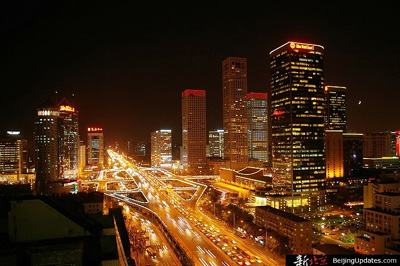
|
BIZCHINA> Center
 |
|
Related
More motorists driven to public transport: Study
By Wang Qian (China Daily)
Updated: 2008-06-24 06:49 Beijing resident Zhuang Yan uses her car mostly on weekends, for drives to the outskirts of the capital. On weekdays, the 29-year-old public servant simply forgets that she has a car. She and her husband seldom drive to work, "because it sometimes takes longer by car than on foot, especially during rush hour".
 What is more, car maintenance costs too much, Zhuang told China Daily over the phone. "As oil prices soar, public transport is a wise choice for avoiding traffic jams and parking problems in the capital," she said. Zhuang is part of a group researchers call "owners of idle cars" - people who have cars but seldom drive them. One in 10 car owners in the country belongs to such a group, the 2008 Foton Chinese Index for Mobility released on June 11 showed. The index was derived from a mobility survey jointly conducted by Beijing-based Beiqi Foton Motor Co Ltd and the Horizon Research Consultancy Group. The two groups started releasing the index in 2005, offering an insight into the transport habits of the Chinese. It showed the extent of people's reliance on motor vehicles in social and economic activities, and how private cars could further influence people's lifestyles and way of thinking. The latest study polled 4,545 people aged between 18 and 60 in 36 cities and towns nationwide. It saw the Chinese scoring 61.42 points out of a maximum 100 for this year's index, 3.09 points higher than in 2005, showing great strides taken in mobility, the survey said. However, corresponding developments in the automobile industry have also had negative impacts such as serious traffic congestion and greater strain on limited oil resources in the country. These factors have prompted more motorists to become owners of idle cars, researchers said. Four out of 10 of such owners had done so because of spiraling gasoline prices, researchers found. The surveys showed that about half of urban private car owners thought the fees for car maintenance and oil consumption were "affordable" in 2005, but only one out of five in the 2007 index thought so. "Driving is a kind of burden to me. Last Friday, fuel prices started to rise again, which means every month I have to pay an additional 300 yuan ($44). I believe more than 20 percent of car owners will use public transport by next week," said Chen Daping, a 30-year-old worker in Beijing. "It costs me only 1.8 yuan to take the bus from Tian Tongyuan in Changping district to Anzhenli in Chaoyang district, but more than 20 yuan for gasoline to drive a car. What a deal!" wrote an Internet user under the name of "tyy Ma" on news portal Sina.com. The high costs were not the only reason for the increasing number of owners of idle cars. Traffic jams also played a role, researchers found. The economic loss caused by traffic jams in Beijing was the highest among the cities in the country, about 375 yuan per person per month, followed by Guangzhou at 273.8 yuan and Shanghai at 228.2 yuan. The researchers said convenient public transport networks should be developed to help solve the problem effectively. Beijing has reportedly done a good job in developing a convenient and affordable public transport system, which was ranked first in the survey. The survey showed that about 21.3 percent of respondents suggested improving public transport routes to help alleviate traffic congestion, while 14.3 percent said special lanes should be arranged for buses. The rest suggested improving road conditions and limiting private car usage. (For more biz stories, please visit Industries)
|